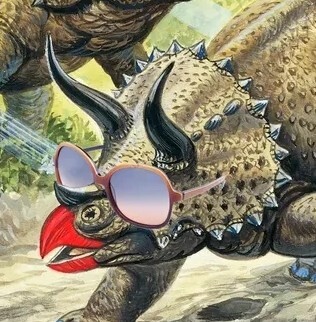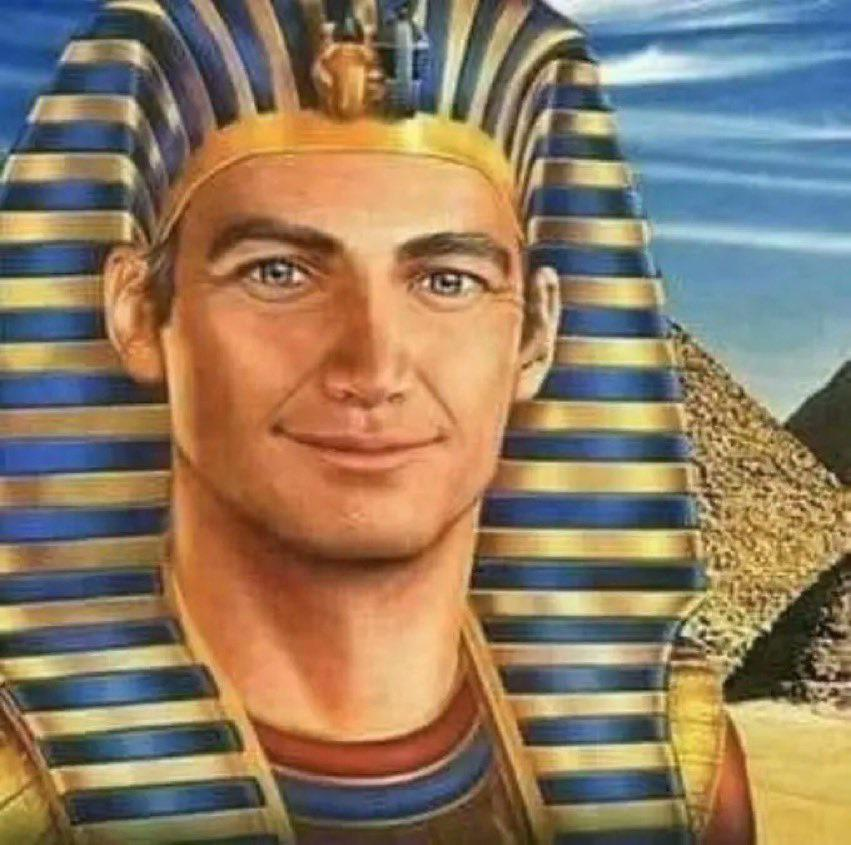“Dr. King's policy was that nonviolence would achieve the gains for black people in the United States. His major assumption was that if you are nonviolent, if you suffer, your opponent will see your suffering and will be moved to change his heart. That's very good. He only made one fallacious assumption: In order for nonviolence to work, your opponent must have a conscience. The United States has none.”
A civil rights leader, antiwar activist, and Pan-African revolutionary, Stokely Carmichael is best known for popularizing the slogan “Black Power,” Carmichael was a leading force in the Student Nonviolent Coordinating Committee (SNCC), working in the Deep South to organize African American voters. In the process he was beaten by white racists and frequently jailed. In time, Carmichael grew disillusioned about the prospects for social change through nonviolent protest, interracial alliances and civil rights legislation. He wasn't the first civil rights figure to proclaim the need for black power, but Carmichael became one of the most prominent exponents of the term.
Carmichael was born in 1941 in Port of Spain, Trinidad. His family moved to New York City, New York when he was eleven. He showed promise as a young student and was accepted into the mostly white Bronx High School of Science in 1956. He attended Howard University and joined the newly formed Student Non-Violent Coordinating Committee (SNCC) in 1960.
He participated in SNCC sit-ins and Freedom Rides throughout the Deep South, and when SNCC turned its attention to voter registration, Carmichael led the campaign that established the Lowndes County Freedom Organization, a symbolic forerunner to the Black Panther Party.
In 1964, Carmichael graduated from Howard and, along with other young SNCC activists, became increasingly frustrated with the movement’s reliance on white liberals and its advocacy of non-violent reform, especially in the wake of the Democratic Party’s betrayal of the Mississippi Freedom Democratic Party.
Over time, Carmichael became impatient with the willingness of older civil rights leaders to compromise with President Lyndon Johnson and other white authorities. Following his arrest during a protest march in Mississippi, Carmichael angrily demanded a change in the rhetoric and strategy of the civil rights movement. "This is the twenty-seventh time I've been arrested," Carmichael told a crowd of marchers in Greenwood, Mississippi. "I ain't going to jail no more. The only way we gonna stop them white men from whupping us is to take over. We've been saying 'Freedom' for six years and we ain't got nothin'. What we gonna start saying now is Black Power."
Carmichael was speaking about more than the white oppression in the Mississippi Delta. Black discontent was growing in urban neighborhoods in the North, where poverty and discrimination were also commonplace. Black power "seemed perfectly attuned to the mood of the ghettos," writes historian Adam Fairclough, where "a cult of the gun" injected a sense of impending black-on-white violence.3 Carmichael's stance on the use of violence was at once provocative and complicated. Parting ways with SNCC, he proclaimed the need and the right for African Americans to take up arms for self-defense.
Most whites condemned black power as a motto for a new form of racism, or as a call for outright race warfare. Mainstream civil rights leaders also rejected the phrase. NAACP leader Roy Wilkins denounced the slogan as "the father of hate and the mother of violence," predicting that black power would mean "black death." Martin Luther King Jr. said the term was "unfortunate" and urged Carmichael to drop the phrase. Carmichael refused.
“Black Power” fragmented the liberal civil rights coalition of the 1950s and early 1960s but inspired subsequent groups such as the Black Panther Party, which, despite ideological disagreements, named Carmichael as its Honorary Prime Minister in 1968.
Carmichael spent the last decades of his life abroad, denouncing U.S. racism and imperialism while working to build the All African Peoples Revolutionary Party. He changed his name to Kwame Ture in 1968, in honor of his friends and political allies, Pan-African leaders Sekou Touré and Kwame Nkrumah. In 1969, Ture settled permanently in Conakry, Guinea where he died of prostate cancer in 1998.
-
Black Leaders Discussion feat. Angela Davis, Kwame Ture & Fannie Lou Hamer (1973)
-
H. Rap Brown & Stokely Carmichael in Oakland (1968) | KQED Archives
The State and Revolution :flag-su:
:lenin-shining: :unity: :kropotkin-shining:
The Conquest of Bread
:ancom:
Remember, sort by new you :LIB:
Yesterday’s megathread :sad-boi:
Follow the ChapoChat twitter account :comrade-birdie:
THEORY; it’s good for what ails you (all kinds of tendencies inside!) :RIchard-D-Wolff:
COMMUNITY CALENDAR - AN EXPERIMENT IN PROMOTING USER ORGANIZING EFFORTS :af:
Join the fresh and beautiful batch of new comms:
!finance@hexbear.net :deng-salute:
!agitprop@hexbear.net :allende-rhetoric:
!recovery@hexbear.net :left-unity-2:
!neurodiverse@hexbear.net :Care-Comrade:
missed the new megathread, still need to share that I just got permabanned from the ADHD subreddit for quoting mao at a mod, and when they told me not to quote mao at them I asked if they were a landlord lol
Update: I asked why I was banned and apparently it's for "not shutting up for two seconds" and "not respecting a boundary". On a subreddit for people with ADHD. A disorder known for impulse control and good intuition for others' boundaries. Lol.
My boss at the grocery store just said he doesn’t understand how he is a human paying another human for a product. You alllllllll know your boi gave him a brief rundown of the labor theory of value
I’ve been listening to proles pod the last few days too. :stalin-shining:
Theory of surplus value is a bit different from labor theory of value, which is more Smith and Ricardian stuff, but hopefully the rundown went solid either way.
feeling nervous as fuck about a (socially distanced) first date today, please wish me luck comrades
:flag-gay-pride: :floppy-parrot: :screm-pretty:
why do I get the greatest urge to do anything productive just as I’m turning in for the night
I spend the whole day too depressed and tired to do anything and right when I give up I’m the most motivated :screm3:
Idk but I don’t even have a job, I just bum out on the couch and game :agony-limitless:
People usually refer to it as being a night owl. The scientific term for different sleep patterns is chronotype. I read a decent book about it called When by Dan Pink.
I do my best work between 10pm and 3am, and my natural sleep cycle is from 4am to noon. It's fucking horrible, because the world isn't structured around those hours. Like, I can and have forced myself to do the normie 0600-2200 wake hours for many many years, but I'm profoundly miserable and perpetually tired the entire time. It doesn't matter that I'm getting the same amount of sleep, it doesn't matter how on point my nutrition is and how much regular exercise I'm getting- I'm still fucking miserable.
This pandemic has been wonderful, because I've been unemployed the whole time and uni is completely online. I don't have to force my body to conform to hours that it doesn't want to, and it's been magical. I'm high-key dreading the inevitable return to normal life.
capitalism has probably spent trillions on Microsoft Word at this point and did writing improve? no. it’s probably worse.fuck you
In order for nonviolence to work, your opponent must have a conscience.
I absolutely love this quote, it's so clear and concise
Boomer manager last summer: Omg another black person died from police brutality, sorry your ppl are dying. This is terrible.
Boomer manager yesterday: I love (our city's) police, they're so great teehee :deng-smile:
Bit idea: following the phrase "bit idea:" with something that is not a bit at all but rather something of a serious or emotional nature. Such a juxtaposition would surely be more amusing than any real bit idea
my mom is ingesting a steady diet of right wing insanity while going through menopause.
I'm worried about her. She's letting this shit really hurt her relationships with her brother/sister. She's posting about how she'll get sent to the gulag.
After being rescheduled for three weeks straight, finally got my first COVID vaccine
:party-parrot: :party-parrot: :party-parrot:
Yall ever guilt workout? You know you weren't productive enough in the day so you just randomly start exercising at midnight because you don't want to be a blob?







